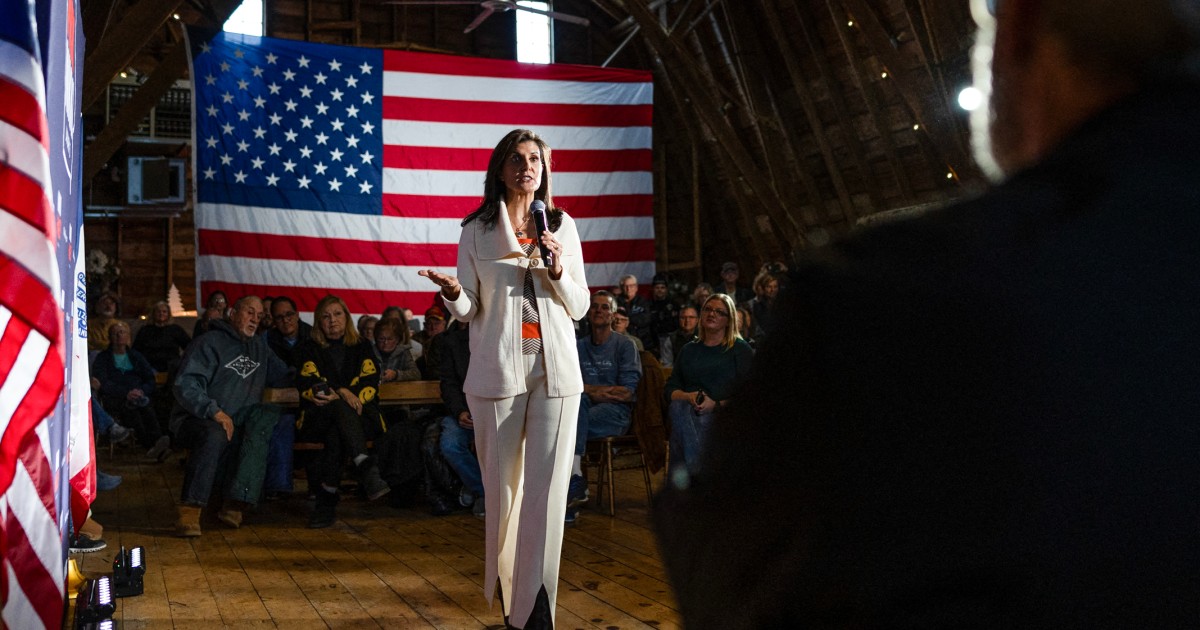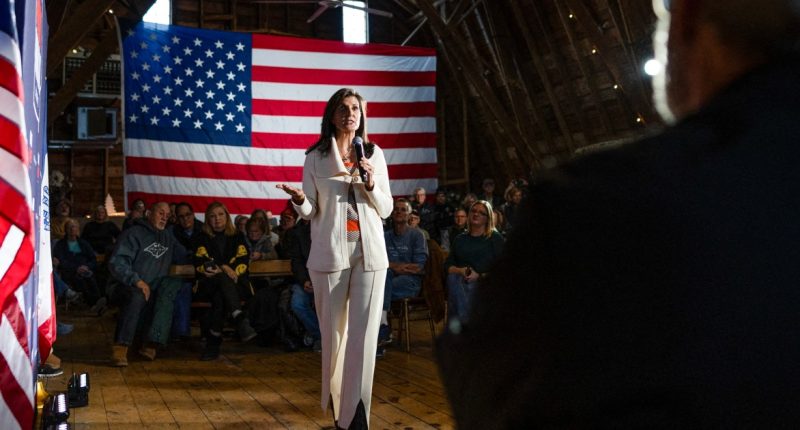
Former U.N. Ambassador Nikki Haley has worked on the campaign trail to strike a balance between declaring herself “unapologetically pro-life” and advocating for finding national consensus on abortion access.
Haley has cast that as an appropriate and necessary emphasis for someone running for president of a tightly divided nation. But it is a sharp shift from what she emphasized not only as South Carolina’s governor but, before that, as a state legislator.
During her time in the state House of Representatives from 2004 to 2010, Haley backed two “right to life” bills that would have significantly limited abortion access statewide, although neither bill ultimately became law.
In 2010, Haley co-sponsored a bill proposing that life begins at fertilization, with due process and equal protection both applying to embryos, essentially imposing a complete ban on abortion. The bill, which died in committee, did not include any exceptions — not for rape, incest or the life and health of the mother.
And in 2005, Haley voted in favor of another bill that made a similar due process and equal protection proposal beginning at fertilization, but included an exception for rape victims taking a morning-after pill.
While campaigning for president, Haley has so far largely dodged specifics on questions about the number of weeks at which abortion should be federally banned.
“Nikki is 100% pro-life. As president, she will bring people together to save as many babies and support as many moms as possible,” Haley’s campaign responded in a statement. “She believes she can best accomplish that goal by working to find consensus at the national level and humanizing this issue instead of demonizing it.”
Haley has spoken at the GOP presidential debates about letting states decide their own policies and brushed off the idea of new federal legislation on abortion as unrealistic, given the 60-vote threshold to overcome a Senate filibuster. She took heat for that position from debate rivals, including Sen. Tim Scott of South Carolina and former Vice President Mike Pence, both of whom have since dropped out.
“As much as I’m pro-life, I don’t judge anyone for being pro-choice, and I don’t want them to judge me for being pro-life,” Haley said at the debate in Miami last month. “So when we’re looking at this, there’re some states that are going more on the pro-life side. I welcome that. There’re some states that are going more on the pro-choice side. I wish that wasn’t the case, but the people decided.”
She added later, “Let’s focus on how to save as many babies as we can, and support as many moms as we can.”
Republican presidential contenders have walked a line between taking a conservative stance against abortion to win over primary voters and trying not to sound so hard line that they alienate independents and moderate voters. Democrats, meanwhile, are hoping to frame the 2024 presidential election as a referendum on reproductive rights and access to abortion.
This year, Ohioans passed a ballot measure to enshrine abortion rights in the state’s constitution, and Democrats in Virginia maintained a majority in the state Senate while flipping control of the state House, in a rejection of Republican Gov. Glenn Youngkin, who campaigned on a 15-week abortion ban.
Source: | This article originally belongs to Nbcnews.com










